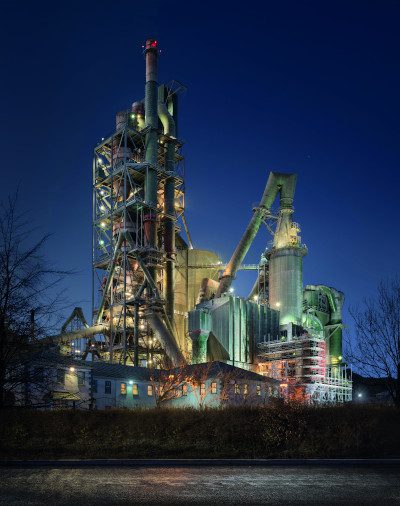
A Belfast firm has been awarded £4.9 million funding from the UK Department for Energy Security and Net Zero (DESNZ) to develop a reactor for producing hydrogen from sustainable biomass and biomass waste.
The resulting bio-hydrogen reactor “offers a much lower cost of production and a much shorter time-to-market,” says the firm, “with the added advantage of the bioCO2 being used to displace the fossil CO2 currently used in many industries.”
CATAGEN’s biohydrogen technology “uses a source of waste biomass which is readily available both in the UK and Ireland and importantly does not displace the growing of crops for food.”
Having already built a prototype Biohydrogen Generator and successfully completed feasibility studies in real-world industrial settings, including at the Mannok Cement Plant in Ballyconnell (pictured), CATAGEN says this funding will allow it to deliver a full-scale demonstrator by 2025.
Hydrogen from renewable sources is widely considered to be one of the most important low carbon fuels that will increasingly phase out fossil fuels. Hydrogen is also crucial for several other net zero technologies and fuels including e-fuels which will be critical for the most difficult-to-decarbonise sectors, such as heavy-duty diesel, aviation, and marine.
This latest government funding is part of a broader £21 million package to support innovation in hydrogen BECCS (bioenergy with carbon capture and storage) technologies in the UK.
Dr Andrew Woods, CEO and Co-Founder of CATAGEN, said, “CATAGEN has been on an amazing journey over the past year, not only has our core business expanded its emissions testing work but we have rapidly innovated five new net zero technologies with the support from the Department for Energy Security and Net Zero. This funding award allows us to move into our next phase of development for the ClimaHtech BIOHGEN system, recruiting more engineers as we accelerate our journey to clean and decarbonise the air.”
“I’m also pleased to announce that working collaboratively with Joe O’Neill, CEO and his team at Belfast Harbour, we will site the first BIOHGEN system in the Harbour Estate and grow the size of CATAGEN’s footprint. This provides massive opportunity for the early adoption of low-carbon hydrogen to decarbonise transport or heavy industry at a focal point in Belfast, as part of Belfast Harbour’s Green Port Strategy.”
In Phase 1 of this project, CATAGEN developed an initial prototype reactor and has proven the feasibility of a low-cost solution, capable of delivering high quantities of biohydrogen within the next few years, well ahead of 2030 targets and well in advance of widespread, low-cost green hydrogen production from electrolysis. CATAGEN says its novel approach requires less capital investment and much lower production costs. GHG (Greenhouse Gas) emissions are also net zero with the bioCO2 produced being used to further displace fossil CO2 currently used in several industries.
Minister for Energy Security and Net Zero Graham Stuart said, “Our investment of over £80 million will help them to go further and faster, using the latest science, technologies, and new energy sources to cut ties with fossil fuels and futureproof their industries.”
Bio-hydrogen, from sustainable biomass and biomass waste, is said to offer a significant opportunity to accelerate the production of low-carbon-hydrogen, particularly in the near term. “This approach offers a much lower cost of production and a much shorter time-to-market with the added advantage of the bioCO2 being used to displace the fossil CO2 currently used in many industries.”
The firm says funding will support new high-skilled green jobs in the region, with CATAGEN expected to grow its team by at least 50 per cent over the next two years. Local suppliers and contractors will also benefit from further upskilling as the company expands its headquarters in the historic Titanic Quarter.
Biohydrogen is one of CATAGEN’s 5 ClimaHtech technologies in development to clean and decarbonise the air. As the firm explains, it “has a successful core business and is a market expert in providing best in class emissions data to the automotive industry.”








